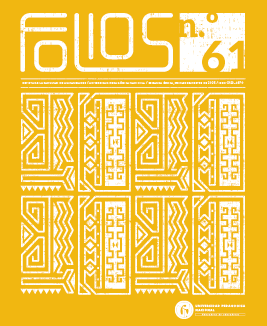Estrategias metacognitivas en el desarrollo del pensamiento crítico en inglés como lengua extranjera
Resumen
El presente trabajo de investigación buscó determinar la relación entre las estrategias metacognitivas y el pensamiento crítico en la enseñanza de inglés como segunda lengua, con el fin de mejorar el pensamiento crítico. Con un enfoque cuantitativo y mediante un diseño cuasi-experimental, se hizo un estudio correlacional través de dos instrumentos: los cuestionarios Metacognitive Awareness Inventory (MAI) y Cornel Critical Thinking Test Level Z, aplicados a 50 estudiantes de cuarto nivel del Centro de Lenguas de la Pontificia Universidad Católica Sede Ambato. Para ello, se llevó a cabo una validación por parte de expertos, quienes evaluaron los instrumentos. Después de su aplicación, se evidenció una correlación positiva entre la metacognición y el pensamiento crítico, utilizando al prueba Wilcoxon. Se obtuvo un valor de p (Sig. asintótica (bilateral)) inferior a 0,01, lo que permitió concluir que, cuanto más se utilicen estrategias metacognitivas, los estudiantes pueden potenciar las áreas de pensamiento crítico, tales como la interpretación, el análisis, la evaluación y la autoevaluación, la inferencia, la explicación y, en especial, la autorregulación y el autoaprendizaje de una segunda lengua.
Citas
Amer, A. (2006). Reflections on Bloom’s Revised Taxonomy. Electronic Journal of Research in Educational Psychology, 4(1), 213-230.
Baker, L. y Brown, A. (1984). Metacognitive Skills and Reading. En P. Pearson, R. Barr, M. Kamil y P. Mosenthal (eds.), Handbook of Reading Research (pp. 353-394). Longman.
Beni, R. de., Palladino, P., Pazzaglia, F. y Cornoldi, C. (1998). Increases in Intrusion Errors and Working Memory Deficit of Poor Comprehenders. The Quarterly Journal of Experimental Psychology A: Human Experimental Psychology, 51A(2), 305-320. https://doi.org/10.1080/027249898391648
Bjork, R. (1994). Memory and Metamemory Considerations in the Training of Human Beings. En J. Metcalfe y P. Shimamura (eds.), Metacognition: Knowing about Knowing (pp. 185-205). mit Press.
Bloom, B., Engelhart, M., Furst, E., Hill, W. y Krathwohl, D. (1956). Taxonomy of Educational Objectives: The Classification of Educational Goals. David McKay Company.
Bonilla, M. y Díaz, C. (2018). La metacognición en el aprendizaje de una segunda lengua: Estrategias, instrumentos y evaluación. Revista Educación, 42(2), 629-644. http://dx.doi.org/10.15517/revedu.v42i2.25909
Bransford, J., Brown, A. y Cocking, R. (2000). How People Learn (vol. 11). National Academy Press.
Bransford, J., Sherwood, R., Vye, N. y Rieser, J. (1986). Teaching Thinking and Problem Solving: Research Foundations. American Psychologist, 41(10), 1078-1089. https://doi.org/10.1037/0003-066X.41.10.1078
Brown, A. (1978). Knowing When, Where and How to Remember: A Problem of Metacognition. En R. Glaser (ed.), Advances in Instructional Psychology (pp. 77-165). Halsted Press.
Chamot, A. (1990). Cognitive Instruction in the Second Language Classroom: The Role of Learning Strategies. En J. Alatis (ed.), Georgetown University Round Table on Language and Linguistics (pp. 496-513). Georgetown University Press.
Dewey, J. (1910). How We Think. Columbia University Teachers College Press.
Ennis, R., Millman, J. y Tomko, T. (2005). The Cornell Critical Thinking Tests, Level X and Z, Revised. Midwest Publication. Facione, P. (1990). Critical Thinking: A Statement of Expert Consensus for Purposes of Educational Assessment and Instruction (The Delphi Report). Insight Assessment.
Flavell, J. (1979). Metacognitive and Cognitive Monitoring: A New Area of Cognitive Developmental Inquiry. American Psychologist, 34, 907-911.
Grounds, P. y Guerrero, S. (2017). Approaches and Methods in English Language Teaching. En S. Guerrero (ed.), Primary Methodology Handbook Practical Ideas for ELT (1.a ed.) (pp. 9-39). Richmond.
Halpern, D. (2014). Critical Thinking Across the Curriculum: A Brief Edition of Thought & Knowledge. Routledge.
Kuhn, D. y Dean, D. (2004). Metacognition: A Bridge between Cognitive Psychology and Educational Practice. Theory into Practice, 43(4), 268-273. https://faculty.weber.edu/eamsel/Classes/Practicum/DaVinci%20Practicum/Papers/Kuhn%20&%20Dean%20(2004).pdf
Livingston, J. (1996). Effects of Metacognitive Instruction on Strategy Use of College Students (unpublished manuscript). State University of New York at Buffalo.
Meichenbaum, D. (1977). Cognitive Behavior Modification: An Integrative Approach. Plenum.
Moore, Z. (2007). Critical Thinking and the Evidence-Based Practice of Sport Psychology. Journal of Clinical Sport Psychology, 1(1), 9-22. Naimnule, L. y Corebima, A. (2018). The Correlation between Metacognitive Skills and Critical Thinking Skills toward Students’ Process Skills in Biology Learning. Journal of Pedagogical Research, 2(2), 122-134.
Nelson, T. y Narens, L. (1990). Metamemory: A Theoretical Framework and New Findings. En G. Bower (ed.), The Psychology of Learning and Motivation (vol. 26). Academic Press.
Pressley, M. y Gathala, E. (1990). Self-regulated Learning: Monitoring Learning form Text. Educational Psychologist, 25, 19-33.
Roberts, M. y Erdos, G. (1993). Strategy Selection and Metacognition. Educational Psychology, 13, 259-266.
Sadeghi, B., Hassani, M. y Rahmatkhah, M. (2014). The Relationship between efl Learners’ Metacognitive Strategies, and Their Critical Thinking. Journal of Language Teaching and Research, 5(5), 1167-1175. https://doi.org/10.4304/jltr.5.5.1167-1175
Sánchez, J. y Pérez, O. (2020). Communicative Approach in the Teaching-Learning Process of English as a Foreign Language. Revista ConCiencia epg, 5(2), 1-14.
Schraw, G. y Dennison, R. (1994). Assessing Metacognitive Awareness. Contemporary Educational Psychology.
Schraw, G. y Lehman, S. (2001). Situational Interest: A Review of the Literature and Directions for Future Research. Educational Psychology Review, 13(1), 23-52.
Schunk, D. (2012). Learning Theories an Educational Perspective (6.a ed.). Pearson.
Scott, C. (14 de noviembre de 2015). El Futuro del aprendizaje 2 ¿Qué tipo de aprendizaje se necesita en el siglo xxi? unesdoc Biblioteca Digital. https://unesdoc.unesco.org/ark:/48223/pf0000242996_spa
Sternberg, R. (1986). Critical Thinking: Its Nature, Measurement and Improvement. National Institute of Education.
https://eric.ed.gov/?id=ED272882 Vancouver Island University (viu). (2017). viu Teaching and Learning Handbook. https://ciel.viu.ca/sites/default/files/web-aug-17-viu-newfaculty-handbook-print.pdf
Vygotsky, L. (1980). Mind in Society: The Development of Higher Psychological Processes. Harvard University Press.
Zimmerman, B. (2000). Attaining Self-Regulation: A Social Cognitive Perspective. En M. Boekaerts, P. Pintrich y M. Zeidner (eds.), Handbook of Self-regulation (pp. 13-39). Academic Press.
Descargas
Derechos de autor 2024 Folios

Esta obra está bajo una licencia internacional Creative Commons Atribución-NoComercial 4.0.




























